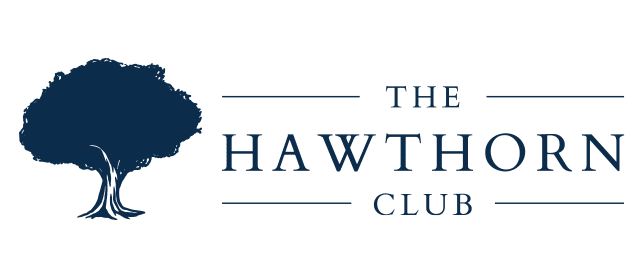In conversation with
Dame Fiona Woolf
Former partner at CMS Cameron McKenna and Lord Mayor of London

Dame Fiona Woolf

Alice Gibson
The global Covid-19 pandemic has sparked heartening instances of ethical leadership from governments, companies and individuals. It has also sparked concerning instances of ethical failure. The Hawthorn Club’s APAC Advisor, Alice Gibson, is studying the ethical leadership phenomenon. In this conversation series she talks to some of the Hawthorn women about their experience of ethical leadership, and what this means for them during the Covid-19 pandemic.
Alice:
When I say ‘ethical leadership’ what comes to mind for you?
Fiona:
Being an energy lawyer, I tend to think of ethical leadership as being related to environment, social and governance “ESG” factors. You come across ESG factors from the world of asset management. It’s thinking not just about the profit motive, or your immediate own best interests, but thinking about others in society – including your own workforce. It’s thinking about the environment, climate change, resource efficiency, and about making sure that is part of the decision making. Decision making is my interpretation of governance; we need to make the right decisions for the long-term, and not just for the next three months.
One of the big problems that emerged in the financial crisis of 2008, was we discovered, that the world was absolutely full of short-termism, and everybody was being judged on their last three months results. Certainly, in the context of the energy sector, ESG factors and the long-term are extremely important. We are doing this for our children and grandchildren. It’s their future, not ours.
Alice:
Can you think of a salient example of ethical leadership?
Fiona:
The most salient example of ethical leadership that comes to mind is Paul Polman of Unilever, who was the finance director before he became the CEO. He turned around and said to the City that it should not judge Unilever by its last three months results, and he was not going to issue quarterly reports. Unilever should also be judged for its impact on society, the supply chain, its customers, staff and the environment as well as its profitability – people, planet, profit.
He then spent a lot of time championing thinking about the impacts on the communities where they source their materials, on the usefulness of products to society and, equally important, the impact on the environment and sustainability. He is a role model for a lot of us, because he has widened the meaning of sustainability. I think he’s also demonstrated those ESG factors in practice. In a customer facing business like Unilever, he was one of the first to make the point that they’re licensed to operate upon acceptance by their consumers, and society more generally.
In the energy sector, we have quite a bit of that. The work I’ve done – whether I’ve been in a leadership role, or a collaboration role – has been focused on trying to achieve environmental outcomes in terms of reducing emissions in the electricity sector, and thinking up new ways of doing that. I see low-carbon as not just as building renewables and putting solar panels on roofs, but actually operating much more efficiently – doing more with less. There’s a lot of potential for efficiency gain which we have not yet captured, and some of it is quite low hanging fruit. For example, the way in which electricity is dispatched in the dispatch algorithm, the measurement may be 5% inaccurate, so there’s an opportunity to improve efficiency there.
It’s also about security of supply. We’ve been working to bring electricity to more people, but also to maintain reliability because it’s now as important as water; a fundamental source of life, prosperity, wellbeing, and health particularly. In the early days, we used to call it “the trilemma” of how we can achieve security of supply, de-carbonization and affordability. We’ve been working on that in many different forms ever since.
Alice:
What changes has the Coronavirus brought about for you?
Fiona:
In terms of leadership, two things I noticed. Heart-warmingly, when we started to be locked down, it brought out a wave of caring, kindness, concern, and thinking about others. To begin with, I was completely overwhelmed by the amount of people contacting me to see if I was all right – people I haven’t been in touch with for a long time.
Importantly, and I think this will be a good and enduring outcome, you and I are able to see each other, and talk using Zoom or Teams or whatever software, that enables us to meet virtually to chat on different sides of the world. I’ve been able to organise talks by other professionals in the power sector with my team, to share how these people see the future and what needs to be done. I want them to understand that behind every challenge is an opportunity.
I was sending emails out saying, “When you’re next in London, could you come and talk to the team?” And then suddenly, I have the possibility of organising it wherever they are on three days’ notice. These professionals are sharing content that is so incredibly rich, and I’m able to reach out all over the world and collaborate. That, I’m sure, will be part of the new normal going forward.
Part of leadership is to share a vision of the future with your followers, and with anybody else who will listen, because leaders must take responsibility for the future, and for the outcomes of the decisions that they make. I think if Coronavirus teaches us anything, we need to be thinking into the future. We must manage this in a way that isn’t just purely focused on stopping another outbreak of this particular virus, otherwise we will be missing a trick.
Which leads me to the second thing I wanted to say. We talk a lot about getting back to normal. I hope we will go – and get forward to normal. I think we spend our time, one crisis after another, looking in the rear-view mirror and solving yesterday’s problems. We need to be looking through the front windscreen at what’s coming towards us, what needs to be done.
I’m working through a low carbon think tank, and I very much hope to persuade the government and the regulators to insert into the recovery program, a strong, low carbon green element, and green incentives. Like our patron Nick Stern, I argue that if we can jump to a new forward-thinking normal, one that is on the low carbon trajectory, it will not cost us more than it would do if we went ‘back to the old normal’.
Although we tend to think we’re doing well in the electricity industry, we still have a lot to do, especially with resource efficiency. And on the heat and transport agendas, we have a mountain to climb. If as a result of the crisis, fewer of us are using our cars and public transport, then the world will be a greener place, and a safer place from the point of view of the virus.
Alice:
What stands out as a specific example of ethical leadership for you, during the pandemic?
Fiona:
An example of ethical leadership might be the fact that governments have put funding behind paying 80% of wages. If you are not able to work, and essentially your job is put on hold by your organisation, we call it furloughing. If you are ‘furloughed’, the government will pay your employer 80% of your salary, so that is caring about people. There is also a lot of volunteering going on. If for example you need medication, there’s an army of quarter of a million people who have volunteered to help with the delivery of medication to elderly people’s homes, so they don’t have to go out to the pharmacist to get it.
At a business level, taking it back to me and my team, we’re all doing our best to keep a sense of that optimism of opportunity I was talking about; of feeling together, of kindness. And it’s probably changing the leadership style of people who are usually driven by targets, which you see a lot of in capitalist societies. That target-driven approach doesn’t give people time to think about the needs of their team.
So whilst we’re all locked up at home on Zoom calls, we actually have some time to think about our people, because we’re worried about the future for them, and we’re worried about the survival of our organisations; we want to keep our people inspired. We want them to continue to develop their skills.
Alice:
Do you think that kindness, and focus on caring and inspiring, is something that will continue after COVID?
Fiona:
I think a lot of businesses are focused on their people. Because businesses will be worried about survival, the ‘people businesses’ will probably focus on the people. Another area where I do a lot of work is generally called diversity and inclusion. We will need our people to be valuing the differences that they have, valuing the diversity; and we will need them to be more inclusive in their leadership style, whatever their level in the organisation.
We need all the ideas that we can get for a recovery, in particular one that’s green. If we’re not diverse and inclusive, where are the new ideas going to come from? If we all come from the same background, we’re going to be suffering from group-think. You can see that in managing the crisis, we’re struggling with new ideas, even the scientists. Some are in competition with each other as well, but more are collaborating. Either way, I think we will need all the good ideas we can get, and all the evidence we can gather to make decisions for the future.
Alice:
Do you think that businesses are valuing, and will continue to value, differences and diversity during and after this COVID period?
Fiona:
I’m not sure. The danger is that in the same way as the low carbon agenda, we will be returning to the old normal, which is not very diverse, and not as inclusive as it could be. We are seeing some examples of inclusive leadership – which I think is part of ethical leadership – emerging and being championed. But the big issue that has been holding up inclusive leadership, is lack of diversity of the workforce, social mobility, and bringing in people from disadvantaged backgrounds.
For me, the big problem has been the focus on income generation, and the focus on profitability. And the challenge going forward as business fights for its survival, is that in an effort to survive, businesses will increase that focus on income generation. They will look for ways of reducing cost, as we’re seeing every day, as we hear more redundancy programs being announced in the media. And the danger is that it will affect the people who come from disadvantaged backgrounds, like the black and minority ethnic, women, and the LGBTQ+ community – and above all the disabled, whether they’re physically or mentally disabled. My worry is that people actually won’t bother to factor in that diversity and inclusion agenda. I’m sorry to say that they think that’s less urgent than even climate change.
Alice:
Why can we coalesce so quickly around a pandemic like COVID, and not arguably a more fundamental crisis like climate change?
Fiona:
Firstly, climate change was not thought to be urgent. And we are just not very good at global cooperative collaboration. I mean, it was a heroic effort to get the Paris Agreement, but how long did it take to get to the Paris Agreement? Hopefully after this experience, those ESG factors, and making decisions collaboratively based on evidence will be seen as important for the whole of society.
(Please note this is an amended transcript of the conversation for the purposes of readability.)

